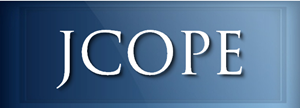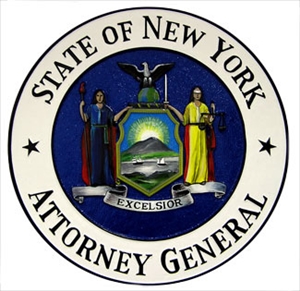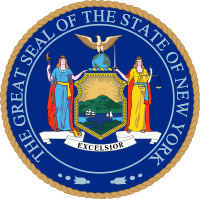In an end-of-session bipartisan push, the Legislature and governor have come to agreement on ethics reform measures. Their five-point plan includes the following: With more disclosure measures in place, super PACs are now able to give and receive unlimited contributions […]
 In an end-of-session bipartisan push, the Legislature and governor have come to agreement on ethics reform measures.
In an end-of-session bipartisan push, the Legislature and governor have come to agreement on ethics reform measures.
Their five-point plan includes the following:
- With more disclosure measures in place, super PACs are now able to give and receive unlimited contributions if they do not coordinate with a candidate;
- Public officers convicted of corruption may face revocation or reduction of their pensions;
- First-time political consultants will be required to disclose when they simultaneously represent political officeholders and private sector clients with government business;
- The reporting thresholds for organizations who lobby on their own behalf has been lowered from $50,000 to $15,000 while individual limits have been lowered from $5,000 to $2,500;
- Contributions over $2,500 to organizations engaged in lobbying must now also be reported to JCOPE; and
- 501(c)(4) organizations will now be required to disclose funding if they engage in political activity and receive any financial support and in-kind donations from 501(c)(3) organizations.
Other new features from the plan include imposition of fines up to $10,000 or the amount of promised contingency fees for anyone violating the state’s prohibition on contingency fee lobbying, a delineation excluding all communication with journalists from the definition of lobbying, and more due process rights for individuals being investigated by the Joint Commission of Public Ethics (JCOPE), including the right to a hearing.
May 24, 2016 •
New York’s JCOPE Budgets to Defend Regulation
Earlier this year, the state Joint Commission on Public Ethics (JCOPE) made a regulatory change requiring public relations professionals to document outreach to editorial boards and report their activity to the state as lobbying. The regulation is now being contested […]
 Earlier this year, the state Joint Commission on Public Ethics (JCOPE) made a regulatory change requiring public relations professionals to document outreach to editorial boards and report their activity to the state as lobbying.
Earlier this year, the state Joint Commission on Public Ethics (JCOPE) made a regulatory change requiring public relations professionals to document outreach to editorial boards and report their activity to the state as lobbying.
The regulation is now being contested by public relations firms who have joined in a federal suit challenging the reporting requirement under free speech provisions of the First Amendment. In response, the commission has budgeted $300,000 annually to a legal defense fund to support this measure.
April 13, 2016 •
NY’s JCOPE Confirms Resignation of Two Commissioners
New York’s Joint Commission on Public Ethics (JCOPE) has confirmed that two commissioners have resigned from their positions. The resignations of commissioners David Arroyo and Joseph Covello were not announced publicly, but their names did not appear on JCOPE’s annual […]
 New York’s Joint Commission on Public Ethics (JCOPE) has confirmed that two commissioners have resigned from their positions. The resignations of commissioners David Arroyo and Joseph Covello were not announced publicly, but their names did not appear on JCOPE’s annual report that was recently released.
New York’s Joint Commission on Public Ethics (JCOPE) has confirmed that two commissioners have resigned from their positions. The resignations of commissioners David Arroyo and Joseph Covello were not announced publicly, but their names did not appear on JCOPE’s annual report that was recently released.
The news of these departures comes just weeks after Seth Agata was selected as the new executive director of JCOPE.
After nine months of searching and receiving over 200 resumes, the New York Joint Commission on Public Ethics has finally found a new executive director. Seth H. Agata, a former top aide to Gov. Cuomo, was named as the new […]
 After nine months of searching and receiving over 200 resumes, the New York Joint Commission on Public Ethics has finally found a new executive director.
After nine months of searching and receiving over 200 resumes, the New York Joint Commission on Public Ethics has finally found a new executive director.
Seth H. Agata, a former top aide to Gov. Cuomo, was named as the new Executive Director of the Commission. His prior experience includes being the Chair of the New York Public Employment Relations Board, Acting Counsel and First Assistant Counsel to the Governor, as well as a former Assistant District Attorney in Columbia County.
March 9, 2016 •
Advisory Opinion Challenged in New York
An advisory opinion by the Joint Commission on Public Ethics has been challenged in federal court. Five public relations firms have brought a suit seeking to block the enforcement of Advisory Opinion 16-01, as they argue the legality of the […]
 An advisory opinion by the Joint Commission on Public Ethics has been challenged in federal court. Five public relations firms have brought a suit seeking to block the enforcement of Advisory Opinion 16-01, as they argue the legality of the opinion’s definition of what constitutes lobbying.
An advisory opinion by the Joint Commission on Public Ethics has been challenged in federal court. Five public relations firms have brought a suit seeking to block the enforcement of Advisory Opinion 16-01, as they argue the legality of the opinion’s definition of what constitutes lobbying.
Under the opinion, the firms claim private conversations with editors and reporters would be required to be disclosed, an act they say would have a chilling effect on the way they do business. Additionally, the firms argue the opinion’s definition of lobbying to be unconstitutionally vague, claiming it fails to give citizens reasonable notice of what is and is not considered lobbying activity.
February 20, 2016 •
New York Joint Commission on Public Ethics Releases New Advisory Opinion on Political Contributions
The Joint Commission on Public Ethics has released an advisory opinion addressing whether an elected official can solicit and accept campaign contributions or other forms of support for his campaign from a subject of the official’s enforcement powers. In the […]
 The Joint Commission on Public Ethics has released an advisory opinion addressing whether an elected official can solicit and accept campaign contributions or other forms of support for his campaign from a subject of the official’s enforcement powers. In the opinion, JCOPE determined an elected official running for election may not directly solicit or accept monetary or in-kind campaign contributions from any person or entity which is the active subject of an ongoing exercise of enforcement powers of the elected official or the office of the elected official.
The Joint Commission on Public Ethics has released an advisory opinion addressing whether an elected official can solicit and accept campaign contributions or other forms of support for his campaign from a subject of the official’s enforcement powers. In the opinion, JCOPE determined an elected official running for election may not directly solicit or accept monetary or in-kind campaign contributions from any person or entity which is the active subject of an ongoing exercise of enforcement powers of the elected official or the office of the elected official.
Additionally, other, non-monetary forms of political support will be determined on a case-by-case basis as to whether a conflict of interest exists. The public official would be required to recuse himself from an exercise of enforcement powers against a party from whom he accepted a contribution in the prior 12 months.
February 17, 2016 •
New York Legislative Ethics Commission Fines Former Assemblyman $100,000
The Legislative Ethics Commission has fined former Assemblyman Dennis Gabryszak $100,000 after the Joint Commission on Public Ethics formally accused him of violating Public Officers Law. Gabryszak’s fine is made up of $30,000 for using his office resources, including phones, […]
 The Legislative Ethics Commission has fined former Assemblyman Dennis Gabryszak $100,000 after the Joint Commission on Public Ethics formally accused him of violating Public Officers Law. Gabryszak’s fine is made up of $30,000 for using his office resources, including phones, computers, and printers to aid his political campaigns, and $70,000 for sexually harassing seven female staff members while in office.
The Legislative Ethics Commission has fined former Assemblyman Dennis Gabryszak $100,000 after the Joint Commission on Public Ethics formally accused him of violating Public Officers Law. Gabryszak’s fine is made up of $30,000 for using his office resources, including phones, computers, and printers to aid his political campaigns, and $70,000 for sexually harassing seven female staff members while in office.
Gabryszak resigned in January 2014. The $100,000 fine is the second largest civil fine ever handed out by the New York Legislative Ethics Commission.
February 4, 2016 •
Roundtable Scheduled and Comment Period Extended for Advisory Opinion Regarding Lobbying and Social Media
The Joint Commission on Public Ethics will be hosting a roundtable discussion on February 12th on proposed guidance on the topic of social media activities and whether certain activities are considered lobbying under the New York Lobbying Act. JCOPE has […]
 The Joint Commission on Public Ethics will be hosting a roundtable discussion on February 12th on proposed guidance on the topic of social media activities and whether certain activities are considered lobbying under the New York Lobbying Act. JCOPE has extended the comment period through February 19th.
The Joint Commission on Public Ethics will be hosting a roundtable discussion on February 12th on proposed guidance on the topic of social media activities and whether certain activities are considered lobbying under the New York Lobbying Act. JCOPE has extended the comment period through February 19th.
The original comment period ran through January 11th, and involved input regarding when social media activity constitutes reportable lobbying activity in terms of direct lobbying, grassroots lobbying, and linking to a lobbying website.
The commission is also seeking input on whether expenditures made in connection with social media activity could be considered “expenses” under the Lobbying Act.
January 27, 2016 •
New York Joint Commission on Public Ethics Releases New Advisory Opinion
The Joint Commission on Public Ethics has released an Advisory Opinion regarding what constitutes lobbying activity when it comes to political consultants and grassroots communications. Advisory Opinion 16-01 requires public relations consultants to register their efforts to influence government through […]
 The Joint Commission on Public Ethics has released an Advisory Opinion regarding what constitutes lobbying activity when it comes to political consultants and grassroots communications. Advisory Opinion 16-01 requires public relations consultants to register their efforts to influence government through public campaigns, which includes any contact with editorial boards aimed at publishing communications involving a political issue.
The Joint Commission on Public Ethics has released an Advisory Opinion regarding what constitutes lobbying activity when it comes to political consultants and grassroots communications. Advisory Opinion 16-01 requires public relations consultants to register their efforts to influence government through public campaigns, which includes any contact with editorial boards aimed at publishing communications involving a political issue.
The Advisory Opinion is meant to encompass grassroots communications, an action the public relations community is calling an unconstitutional restraint on free speech. With the Opinion taking effect, grassroots communication is considered lobbying if it references, suggests, or otherwise implicates activity covered by the Lobbying act; takes a clear position on the issue in question; or is an attempt to influence a public official through a call to action. If a consultant had control over the delivery of the message and had input into its content, registration and reporting will now be required.
January 25, 2016 •
New Public Transparency Website Launched in New York
State Attorney General Eric Schneiderman has announced the release of a new website which will contain information regarding lobbyist disclosures, and will match them up with specific pieces of proposed and passed legislation. The website, designed to promote the public’s […]
 State Attorney General Eric Schneiderman has announced the release of a new website which will contain information regarding lobbyist disclosures, and will match them up with specific pieces of proposed and passed legislation. The website, designed to promote the public’s right to know about decision making within the state government, will also link with the Joint Commission on Public Ethics lobbyist filings.
State Attorney General Eric Schneiderman has announced the release of a new website which will contain information regarding lobbyist disclosures, and will match them up with specific pieces of proposed and passed legislation. The website, designed to promote the public’s right to know about decision making within the state government, will also link with the Joint Commission on Public Ethics lobbyist filings.
Data included on the website will relate to campaign financing, lobbying, charities, state contracts, legislator grants, corporate registrations, and elected officials. The website is available at http://www.NYOpenGovernment.com.
January 4, 2016 •
New York Joint Commission on Public Ethics Formally Accuses Former Assemblyman of Misconduct
The Joint Commission on Public Ethics (JCOPE) has formally accused former Assemblyman Dennis Gabryszak of using his government office to aid his reelection campaign, as well as sexually harassing several female staff members. JCOPE’s investigators found Gabryszak used his office […]
 The Joint Commission on Public Ethics (JCOPE) has formally accused former Assemblyman Dennis Gabryszak of using his government office to aid his reelection campaign, as well as sexually harassing several female staff members.
The Joint Commission on Public Ethics (JCOPE) has formally accused former Assemblyman Dennis Gabryszak of using his government office to aid his reelection campaign, as well as sexually harassing several female staff members.
JCOPE’s investigators found Gabryszak used his office resources, including phones, computers, and printers to aid his political campaigns. The commission also determined Gabryszak used his position to “create and perpetuate an environment in which he could engage in sexually inappropriate behavior.”
The commission accused Gabryszak of at least five violations of New York’s Public Officers Law in what a commission spokesman called “a deplorable exhibition of how not to act in public service.”
The case will now move to the Legislative Ethics Commission, which will decide whether and how much to fine Gabryszak. Each violation of the Public Officers Law carries a penalty of up to $10,000.
December 21, 2015 •
New York Joint Commission on Public Ethics Seeking Public Comment
As more lobbyists turn to the internet and social media, the New York Joint Commission on Public Ethics has begun soliciting informal comments on the applicability of New York’s Lobbying Act to social media activities. The Commission seeks guidance on […]
 As more lobbyists turn to the internet and social media, the New York Joint Commission on Public Ethics has begun soliciting informal comments on the applicability of New York’s Lobbying Act to social media activities.
As more lobbyists turn to the internet and social media, the New York Joint Commission on Public Ethics has begun soliciting informal comments on the applicability of New York’s Lobbying Act to social media activities.
The Commission seeks guidance on when social media activity constitutes reportable lobbying activity in terms of direct lobbying, grassroots lobbying, and linking to a lobbying website.
The Committee is also seeking input on whether expenditures made in connection with social media activity could be considered “expenses” under the Lobbying Act.
Comments will be taken by the Committee until January 11, 2016.
November 19, 2015 •
New York Joint Commission on Public Ethics Seeking Public Comment
The Joint Commission on Public Ethics is seeking public comment on a proposed advisory opinion. The advisory opinion is in regards to the applicability of New York’s Lobbying Act to the activities of consultants when they are taking part in […]
 The Joint Commission on Public Ethics is seeking public comment on a proposed advisory opinion. The advisory opinion is in regards to the applicability of New York’s Lobbying Act to the activities of consultants when they are taking part in direct and grassroots lobbying, and whether they are subject to registration and reporting requirements.
The Joint Commission on Public Ethics is seeking public comment on a proposed advisory opinion. The advisory opinion is in regards to the applicability of New York’s Lobbying Act to the activities of consultants when they are taking part in direct and grassroots lobbying, and whether they are subject to registration and reporting requirements.
The advisory opinion seeks to articulate when the Lobbying Act covers the services of consultants, and to clarify the test used to determine when grassroots advocacy constitutes reportable activity.
Comments will be taken by the Committee until December 4, 2015.
November 18, 2015 •
Public Comments Sought by New York’s Joint Commission on Public Ethics
The Joint Commission on Public Ethics is seeking public comment on a recent proposal aiming to prohibit pay-to-play contributions. The proposal comes in the form of an advisory opinion, and would prohibit statewide executive and legislative candidates from accepting campaign […]
 The Joint Commission on Public Ethics is seeking public comment on a recent proposal aiming to prohibit pay-to-play contributions. The proposal comes in the form of an advisory opinion, and would prohibit statewide executive and legislative candidates from accepting campaign contributions from persons or organizations subject to their enforcement powers.
The Joint Commission on Public Ethics is seeking public comment on a recent proposal aiming to prohibit pay-to-play contributions. The proposal comes in the form of an advisory opinion, and would prohibit statewide executive and legislative candidates from accepting campaign contributions from persons or organizations subject to their enforcement powers.
Currently, there is no prohibition on pay-to-play type contributions for legislative statewide elected candidates. The Joint Commission has not established a deadline for accepting public comments.
State and Federal Communications, Inc. provides research and consulting services for government relations professionals on lobbying laws, procurement lobbying laws, political contribution laws in the United States and Canada. Learn more by visiting stateandfed.com.


